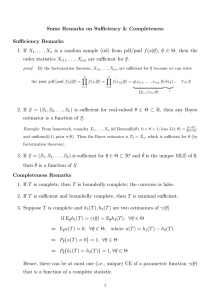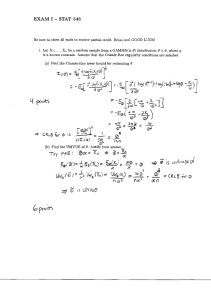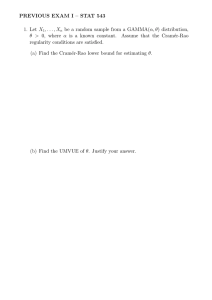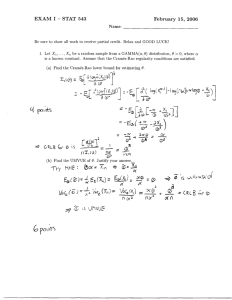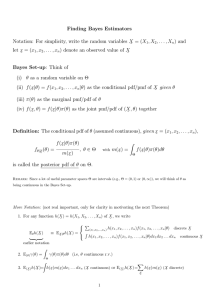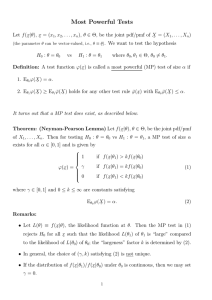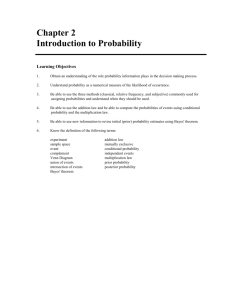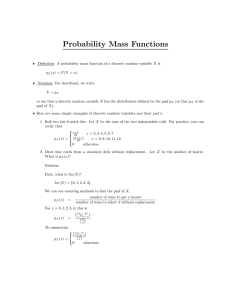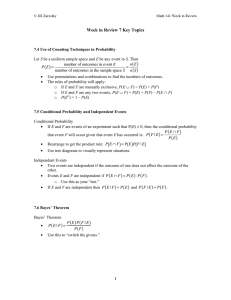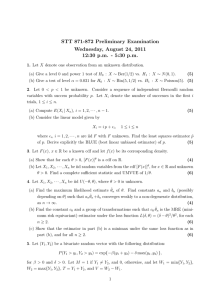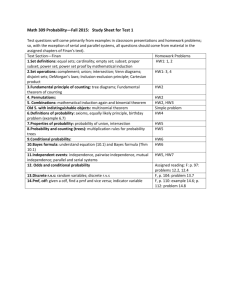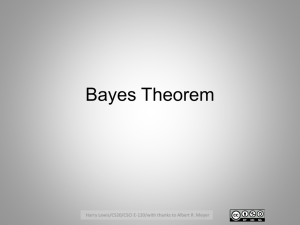Some Remarks on Sufficiency & Completeness Sufficiency Remarks 1. If X
advertisement
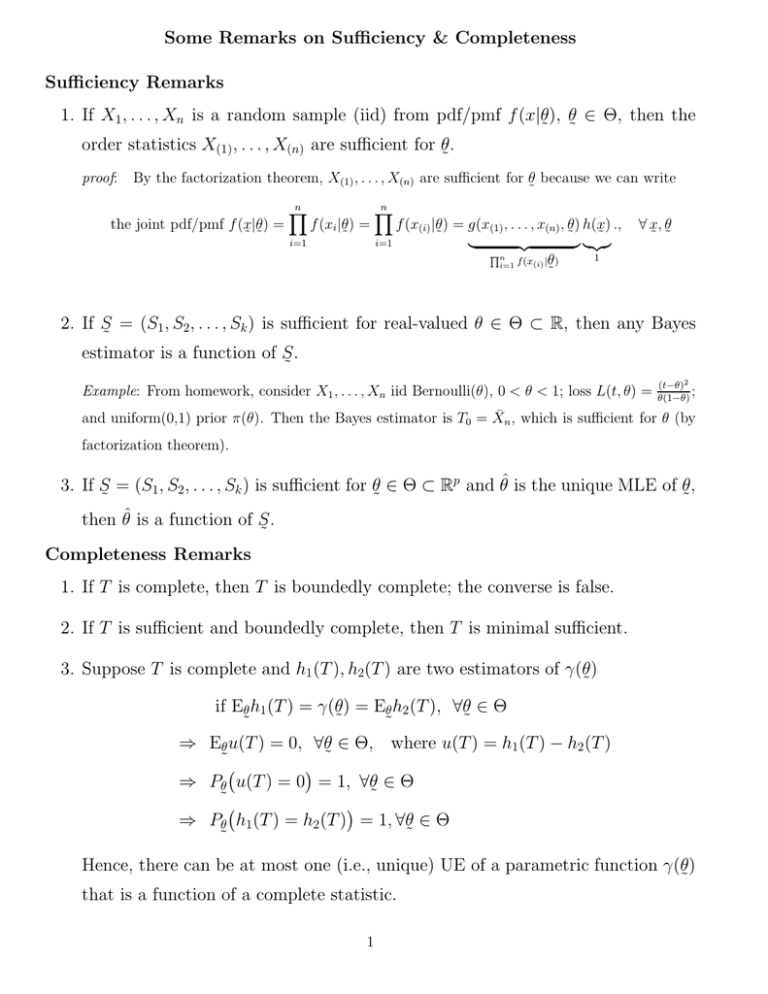
Some Remarks on Sufficiency & Completeness
Sufficiency Remarks
1. If X1 , . . . , Xn is a random sample (iid) from pdf/pmf f (x|θ), θ ∈ Θ, then the
˜ ˜
order statistics X(1) , . . . , X(n) are sufficient for θ.
˜
By the factorization theorem, X(1) , . . . , X(n) are sufficient for θ because we can write
˜
n
n
Y
Y
the joint pdf/pmf f (x|θ) =
f (xi |θ) =
f (x(i) |θ) = g(x(1) , . . . , x(n) , θ) h(x) ., ∀ x, θ
˜˜
˜
˜
˜} |{z}
˜
˜ ˜
i=1
i=1
|
{z
Qn f (x(i) |θ)
1
i=1
˜
proof:
2. If S = (S1, S2, . . . , Sk ) is sufficient for real-valued θ ∈ Θ ⊂ R, then any Bayes
˜
estimator is a function of S .
˜
Example: From homework, consider X1 , . . . , Xn iid Bernoulli(θ), 0 < θ < 1; loss L(t, θ) =
(t−θ)2
;
θ(1−θ)
and uniform(0,1) prior π(θ). Then the Bayes estimator is T0 = X̄n , which is sufficient for θ (by
factorization theorem).
3. If S = (S1, S2 , . . . , Sk ) is sufficient for θ ∈ Θ ⊂ Rp and θ̂ is the unique MLE of θ,
˜
˜
˜
then θ̂ is a function of S .
˜
Completeness Remarks
1. If T is complete, then T is boundedly complete; the converse is false.
2. If T is sufficient and boundedly complete, then T is minimal sufficient.
3. Suppose T is complete and h1 (T ), h2(T ) are two estimators of γ(θ)
˜
if Eθ h1 (T ) = γ(θ) = Eθ h2 (T ), ∀θ ∈ Θ
˜
˜
˜
˜
⇒ Eθ u(T ) = 0, ∀θ ∈ Θ, where u(T ) = h1 (T ) − h2 (T )
˜
˜
⇒ Pθ u(T ) = 0 = 1, ∀θ ∈ Θ
˜
˜
⇒ Pθ h1 (T ) = h2 (T ) = 1, ∀θ ∈ Θ
˜
˜
Hence, there can be at most one (i.e., unique) UE of a parametric function γ(θ)
˜
that is a function of a complete statistic.
1
